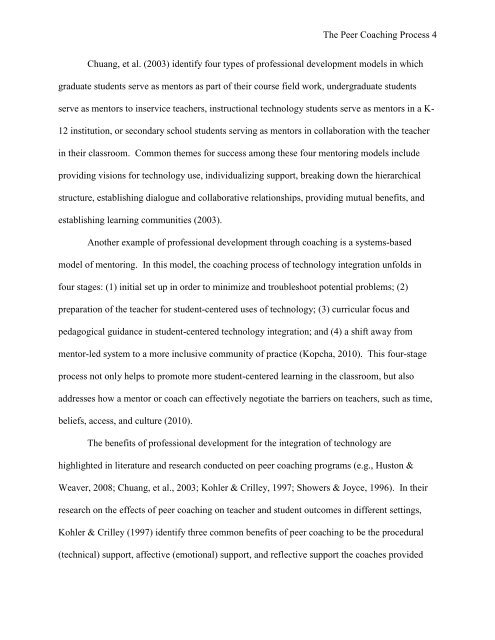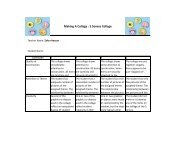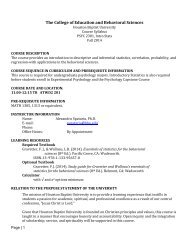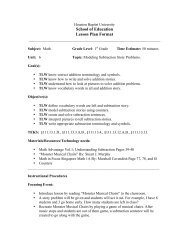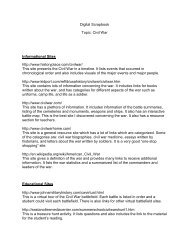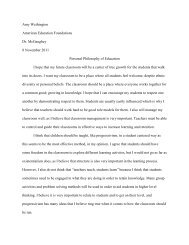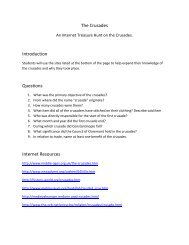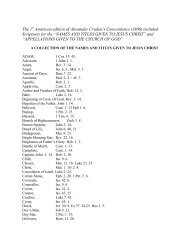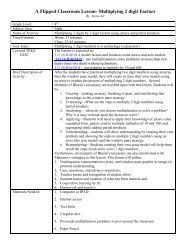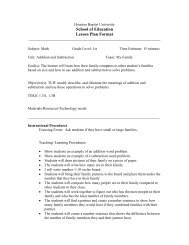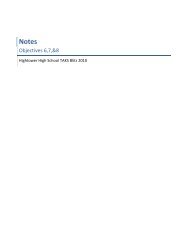Peer Coaching Action Research Paper - Houston Baptist University
Peer Coaching Action Research Paper - Houston Baptist University
Peer Coaching Action Research Paper - Houston Baptist University
You also want an ePaper? Increase the reach of your titles
YUMPU automatically turns print PDFs into web optimized ePapers that Google loves.
The <strong>Peer</strong> <strong>Coaching</strong> Process 4Chuang, et al. (2003) identify four types of professional development models in whichgraduate students serve as mentors as part of their course field work, undergraduate studentsserve as mentors to inservice teachers, instructional technology students serve as mentors in a K-12 institution, or secondary school students serving as mentors in collaboration with the teacherin their classroom. Common themes for success among these four mentoring models includeproviding visions for technology use, individualizing support, breaking down the hierarchicalstructure, establishing dialogue and collaborative relationships, providing mutual benefits, andestablishing learning communities (2003).Another example of professional development through coaching is a systems-basedmodel of mentoring. In this model, the coaching process of technology integration unfolds infour stages: (1) initial set up in order to minimize and troubleshoot potential problems; (2)preparation of the teacher for student-centered uses of technology; (3) curricular focus andpedagogical guidance in student-centered technology integration; and (4) a shift away frommentor-led system to a more inclusive community of practice (Kopcha, 2010). This four-stageprocess not only helps to promote more student-centered learning in the classroom, but alsoaddresses how a mentor or coach can effectively negotiate the barriers on teachers, such as time,beliefs, access, and culture (2010).The benefits of professional development for the integration of technology arehighlighted in literature and research conducted on peer coaching programs (e.g., Huston &Weaver, 2008; Chuang, et al., 2003; Kohler & Crilley, 1997; Showers & Joyce, 1996). In theirresearch on the effects of peer coaching on teacher and student outcomes in different settings,Kohler & Crilley (1997) identify three common benefits of peer coaching to be the procedural(technical) support, affective (emotional) support, and reflective support the coaches provided


